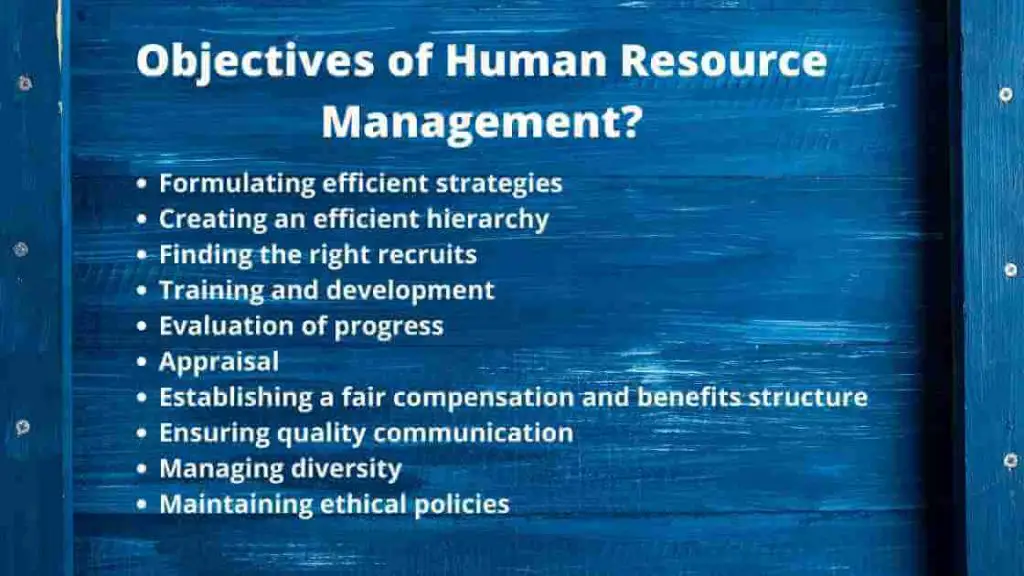Human resource management is a vital function of business that basically “runs the show.” HRM is the strategic planner of how the workforce can operate properly while retaining optimum organizational value and culture. As the business world is changing rapidly, the growing need for HRM is evident.
What is Human Resource Management?
In simple words, Human Resource Management is the formal process by which the people involved in an organization are managed. By staffing, arranging training and development, taking care of compensations and benefits, and making sure there are fairness and equity in the procedure, HRM aims to maximize the level of productivity within an organization. Some crucial roles of HRM are:
- Developing a recruitment process and onboarding
- Arranging proper training and development programs
- Managing compensation and employee benefits
- Taking care of compliance and employer relationship
- Aligning corporate policy
- Succession planning
Starting with an assessment of what the company or organization requires, HR forecasts demand. Based on that, HR starts the process of recruiting the workforce. By developing the necessary filtering process, they select the best possible fit for the position they are hiring.
Next, the duty is to ensure proper onboarding by providing them with an orientation and adequate job description. It is also essential that HR continuously evaluates and suggests improvements in the skill set of employees.
Training the employees and ensuring their quality development is a significant issue for both the employees and the organization. Defining and determining adequate compensation, both financial and non-financial, is one of the essential functions of HRM.
HR is to make sure an employer feels that there is a practice of ethics and proper judgment in the decision-making procedures. Last but not least, it also makes sure that the employees have a pleasant work environment, and the organization does not face any legal dispute or discomfort regarding this sort of issue.
What are the objectives of human resource management?

HRM is an extensive topic. The objectives of HRM can be different based on what type of organization it has or what the organization is aiming for. There are some common objectives HRM is expected to fulfill, such as:
- Formulating efficient strategies: Every organization has a set of definite goals. To get to that point, there needs to be a clearly stated strategy. The target of HRM is to find the best possible approach which allows the best use of resources and is cost-effective.
- Creating an efficient hierarchy: To get to a goal, it is crucial to have a certain workflow. Who will do what portion of the workflow and who will report to whom is a crucial decision HR needs to craft with precision. Finding the hierarchy that saves the most amount of time and maximizes positive outcome is one of the focal objectives.
- Finding the right recruits: Without a competent workforce, reaching a goal can be turbulent, even to the extent where it is impossible. HR has to determine exactly what the organization needs and find candidates who fulfill the conditions.
- Training and development: In the dynamic field, the employees must be up-to-date and aware of their capabilities. To enhance their current qualities as well as to introduce them to newer skills, consistent training is an absolute necessity.
- Evaluation of progress: After implementing the strategies, it is essential to evaluate what value those strategies added to the organization. The same applies to the training process, evaluation of the outcomes of training helps the management to decide whether the practice was helpful or not.
- Appraisal: Letting the employees know how they are adding value to the organization keeps the level of motivation and morale high. It is also to be done to show where they are lacking and could do better. HRM will take self-esteem and other personality traits, along with the necessary improvement of the employees into consideration.
- Establishing a fair compensation and benefits structure: As seen in the essential functions, HRM has to make sure the employees are getting the correct amount of compensation. It is an undetachable part of employee satisfaction and has a significant impact on the reputation of the organization.
- Ensuring quality communication: For better coordination amongst the internal sections and the individual employees, HR has to develop a system with definite hierarchies to ensure the communication process is hassle-free, precise, and in time. Proper communication is a prerequisite of wisely managing the information available.
- Managing diversity: The demographic of most of the businesses in today’s world is diverse. There will be employees of different ages, races, and religions. To create a preferable work environment, HR will have to show that the organization cares about their values and belief and let them create value for the organization itself simultaneously.
- Maintaining ethical policies: HRM has to take steps to ensure procedural justice and equity, maintaining legal and ethical standards. From how the information of employees is used to how the management makes any decision about them, should have clarity and validity approved by legitimate policies.
As the industrial revolution is gradually showing its impact in the business sector, the roles of HR are evolving at a quick pace. Initially, this might seem like a challenge, but looking at the bright side, it can be said that there are smarter and more efficient tools to carry out the works of HRM.
From employee selection to evaluation to maintaining compliance, the software-based services are making it easier to handle the information. This will facilitate the process of decision making and increase precision.
To sum up, the objective of HRM is to benefit the organization strategically so that total resources create the maximum possible output to reach the goal.
Human resource management involves critical decision-making process as well as planning. A skilled human resource team can be a deciding factor of how the organization will perform eventually.
For the well being of the organization and the employees, the managerial and functional activities of human resource management can have a magnanimous impact.
